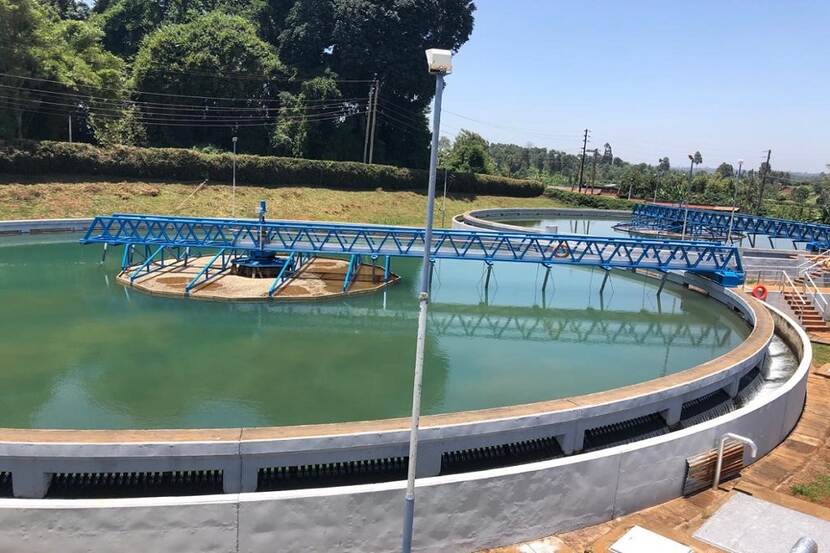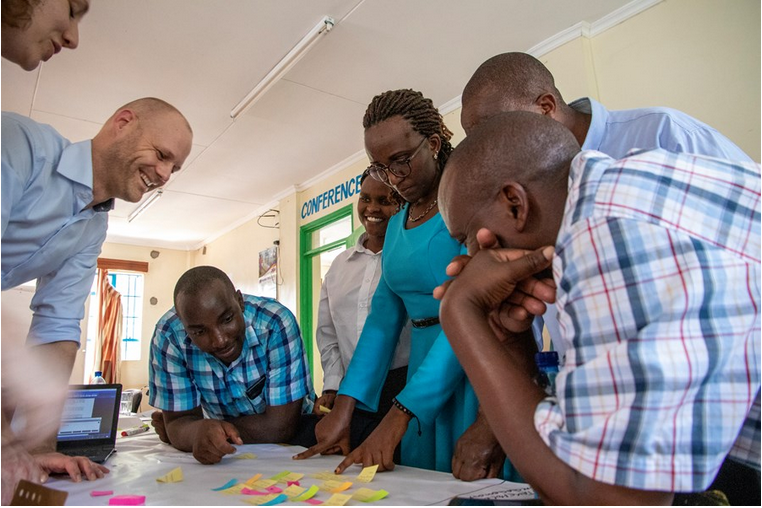Valuing Water in Kenya: the Netherlands Ambassador kicks off the Nakuru visit on World Water Day
The World Water Day 2021 celebrations focused on the theme valuing water. It was a good moment to pause and reflect on progress made so far with the Netherlands support to the Kenyan water sector. This support has been through knowledge and technology transfer and exchanges; in areas that include improving water and sanitation service provision, strengthening water resource management through water quality monitoring and allocation, and promoting water efficiency especially in agriculture.

Access to good quality water
As a low middle income country, Kenya’s growing economy is increasingly dependent on reliable access to good quality water. Kenya’s economy is largely driven by the agriculture sector. At the same time several studies show that globally the agriculture sector is the largest consumer of water and a major water polluter. This is particularly important for a country such as Kenya that is also categorized as a water scarce country, with supply of renewable freshwater falling less than 1000m3/capita/year. These circumstances call for continuous efforts to explore opportunities for strengthening sustainable partnerships, innovative solutions and a robust policy and regulatory framework in the water sector.
The work done by Dutch companies in the water sector in Kenya mainly focuses on:
- Strengthening local water mandated institutions
- Bringing in private sector participation/investment that ensure utilization of innovative solutions and sustainability of interventions.
This is not without challenges. However the ultimate goal is that there is improved services provision (both water, sewer and sanitation) to not only domestic households, but also to institutions and industries; that water resource management is done based on reliable data that informs such key functions as water allocation planning to various sectors; and that innovations such as on waste water reuse, on water retention and on efficient use of available water are enhanced.
Sustainable Development Goal 6 is about "clean water and sanitation for all"
Kenya has adopted the Sustainable Development Goals (SDGs), including the targets outlined for SDG 6 on clean water. To achieve these targets its is required that the multiple benefits of water are valued from a social, economic and ecological dimension, and that there is heightened understanding on the way various stakeholders impact and depend on water. The world water day thematic focus could therefore not be more relevant for Kenya as for the rest of the world!
Jan Spit from the Dutch company VEI is from the Nakuru WaterworX program explains: “Valuing water means that we recognize and consider the various benefits that (waste) water brings: economic, social and the ecological dimensions.
For our work in Nakuru it is the number one way to trigger systematic change, required to improve water management today and secure water management and especially climate resilient water management in future. The ecological dimension of water valuing assures water storage at Turasha Dam and at household level and assures that enough water flows into the dam and reuse of wastewater for urban agriculture.
The social dimension of water valuing assures a good supply of water in adequate quantities to the people living in the Low-Income Areas and handwashing stations to combat Covid-19.
The economic dimension of wastewater valuing leads also to business development: new businesses from local masons to construct toilets, mechanical emptying of pit latrines, use of gas produced in wastewater treatment systems and valorisation of faecal sludge from sanitation systems by turning the sludge into briquettes that replace charcoal.” - Jan Spit, VEI; Nakuru WaterworX program

Water allocation
Jacques van Alphen, working for Waternet and project manager for Blue Deal Kenya explains:
“Working for the Dutch Water Authorities, I do not take the presence of sufficient clean water for granted. I have learned that it is a continuous effort to protect and manage our precious water resources. This is even more valid in Kenya, which is often faced with water shortages.” The Blue Deal partnership between the Water Resources Authority (WRA) in Kenya and the Dutch Water Authorities is a great tool to support better allocation of scarce water resources.
Water allocation planning is a good example of valuing water, especially if we link the value of water to the importance of sufficient water for the various users who depend on it. These users and their interests are very different and range from the water supply for Nairobi, abstractions for large multinational companies such as Delmonte, coffee and tea plantations, local water abstractions for settlements and many individual farmers and households. The Blue Deal partnership with WRA has started with data gathering and training on monitoring and hydrological modelling.
The ultimate goal in the years to come is to develop a sustainable, fair and equitable plan for water allocation for all users, large and small and to support the implementation. This can only be done via an integrated approach that takes into account all values of the water system. Not just for all the users in the specific sub catchments, but also considering up- and downstream relations, also taking into account the water that is necessary for the river as a valuable ecosystem, the food it can provide via fish, the use of water for energy production, etc. A challenging task, but every contribution we can make with the Blue Deal partnership is worth it.
Water in Agriculture
The water sector in Kenya has a growing demand for innovations and solutions, attracting different initiatives that clearly demonstrate the opportunities for (Dutch) entrepreneurs. From pumps to solar energy. Drip by drip water is for example used in a more effective and profitable manner, which is good for the environment and for the farmer. Looking at the current water scarcity in Kenya, it is becoming increasingly clear that having strategies in place to ensure that water is used sustainably, is no longer “nice to do” but a “must do”. Using models and mechanisms to keep resources circulating in the economy at their maximum value, has the potential to bring real change in using water sustainably, especially in the irrigation sector, and offers many opportunities for Dutch businesses.
For more information about the WaterworX program or Blue Deal Kenyayou can send an email to nai-os@minbuza.nl. In case of questions for the Agricultural Counsellor feel free to contact us via nai-lnv@minbuza.nl. For the latest updates follow us on twitter @NLAgriKenya or register for our newsletter by sending an email.